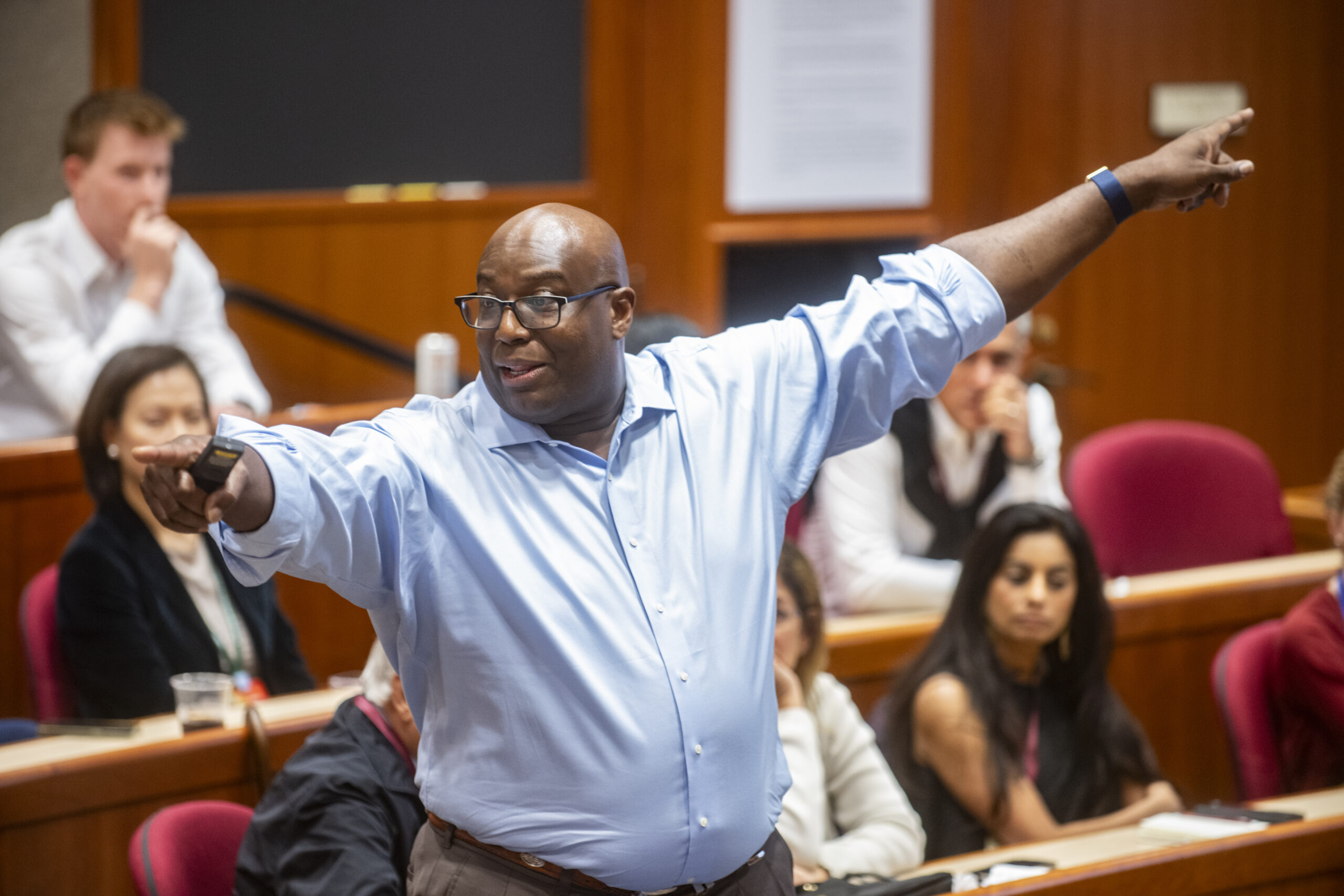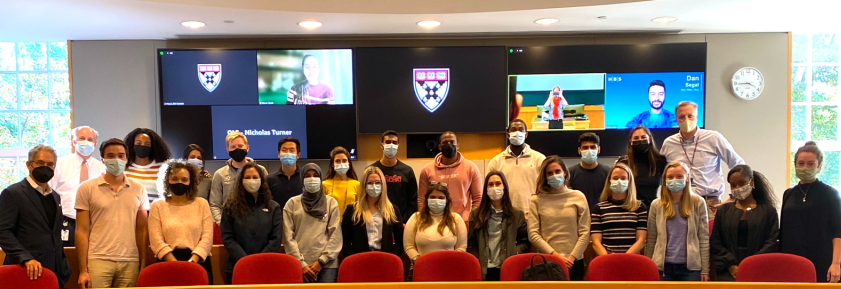

Born out of the efforts of HBS students and faculty in the spring of 2020, the HBS Impact Investment Fund has evolved to become part of a full HBS course – Field Course: HBS Impact Investment Fund – offered for the first time in the fall semester of 2021. (See more about the course in the original blog post below.)
Since the course in the fall, the HBS Impact Investment Fund has made four investments into BIPOC owned and led businesses in Massachusetts: a $50,000 investment into Southwick Social Ventures, a co-operative based in Lawrence, MA that took over a former Brooks Brother factory to continue to make clothing for institutional buyers; a $50,000 investment into NOW PT, a neurological physical therapy business in Springfield, MA; a $25,000 in Hillside Harvest, a Boston, MA based company that sells a range of Caribbean sauces; and a $25,000 investment in Sweet Teez Bakery, a Boston, MA based gourmet bakery that was seeded at Commonwealth Kitchen. Over the spring and summer, and as part of next fall’s class, the HBS Impact Fund will continue to support the growth aspirations of these businesses, and is exploring case studies on each to better codify the challenges that BIPOC entrepreneurs face in accessing early stage capital. The HBS Impact Investment Fund is housed at Impact Assets, a non-profit, 501(c)3 donor-advised fund that is a leading partner to other business school impact funds.
Blog post from October 27, 2021
HBS IMPACT INVESTING FUND COURSE: AN EXPERIENTIAL EDUCATION IN SOCIAL FINANCING
By Tim Cho, Devon Sanford & Zach Komes (all MBA 2022)
This fall, Harvard Business School launched its first Impact Investment Fund Course after a successful pilot in the Spring of 2021. The fund expands access to affordable, flexible financing for Black, Brown, and Immigrant-owned businesses in the greater Boston area that have historically faced barriers to capital, with the dual goals of making profits and creating social change.
Entrepreneurs of color in Massachusetts have an unmet capital demand in the order of $574 million annually, according to The Boston Foundation and Coalition for an Equitable Economy’s “The Color of the Capital Gap” report. Small businesses are a major growth lever for wealth creation and employment in Massachusetts and across the country. Yet, many BIPOC-led and -owned businesses currently face systemic barriers to raising capital, including difficulty accessing loans and lack of access to friends and family capital given the history of racial disparities in the U.S.
To address this growing inequality, the fund aims to invest patient, flexible capital ($25,000 - $50,000) with the goal of scaling BIPOC-led and -owned small businesses. In return, students receive a valuable, hands-on learning experience that builds their investment experience and network.
Designing the Course
The three of us (Tim Cho, Zach Komes, and Devon Sanford) joined Professors Brian Trelstad and Henry McGee this summer to source BIPOC-led and -owned businesses actively seeking capital. We collaborated with leading community organizations, including the Boston Impact Initiative, The Business Equity Fund, LEAF, The Cooperative Fund of New England, and Common Capital, each of whom offered unique insights and recommendations on growing businesses in the greater Boston area. We then compiled a sourcing pipeline, prioritizing businesses that are active local employers, could substantially benefit from a check size of $25,000 - 50,000, and whose revenue, employment, and wealth could grow with an investment.
To our delight, the inaugural course was oversubscribed. Six businesses and 25 second-year MBA students were selected to complete the course. The businesses operate in a wide range of areas including food services, health care, manufacturing, and composting.
Students have been split into groups of four to five and paired with a member of the faculty teaching group who will oversee the students’ efforts. Over the course of the semester, each group will conduct financial, commercial, and operational diligence on prospective investments. The diligence is intended to be mutually beneficial: students will gain investing experience and entrepreneurs will receive value-additive market research and financial models.
At the end of the semester, the teams will prepare an investment memo with a financial model and impact plan, and present a recommendation to the fund’s Investment Committee (IC). The IC is composed of HBS alumni and impact investors who bring a wealth of experience in investing and working with our target communities: Heidi Brooks (MBA 2003) is currently COO at the National Institute for Children’s Health Quality, Greg Shell (MBA 2001) is Managing Director of Bain Capital Double Impact Fund, Stephen Chan (MBA 2009) is VP of Strategy and Operations at The Boston Foundation, T.J. Rose (MBA 2004) is a Partner at ABRY, and Gerardo Espinoza (MBA 1990) is the Executive Director of LEAF.
Scaling the Model
We are excited for this course to be the beginning of a long and productive partnership between the HBS Impact Investment Fund and BIPOC-led and -owned businesses. With growing interest from alumni to scale the fund and advance an impact investing education at HBS, capital can continue to be deployed through the course year-over-year. Furthermore, the fund can serve as an example for other MBA programs that are seeking to educate their students on impact investing and build impactful relationships with local communities.
The HBS Impact Investment Fund course will be offered again in Fall 2022; Scaling Minority Ventures will be offered again this Spring.
To view original post please visit: www.hbs.edu/mba/blog/post/hbs-impact-investing-fund-course